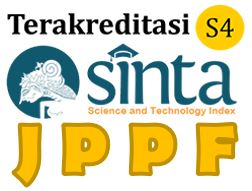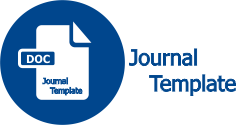Analysis of the Validity of Problem-Based Learning Physics Modules to Facilitate Scientific Literacy in High School Student
DOI:
https://doi.org/10.24036/jppf.v11i2.24Keywords:
Climate Change, Problem-Based Learning, Science Literacy, ModuleAbstract
This research is driven by the objectives of physics learning in the Independent Curriculum, which are in line with the concept of scientific literacy—namely, that students are not only expected to understand scientific theory but also to apply it in providing solutions to real-life problems and interpreting science in everyday contexts. Based on the initial study conducted, students’ scientific literacy has not been well facilitated because the teaching materials used have not optimally supported its development. The proposed solution is to develop a problem-based learning (PBL) physics module designed to facilitate the scientific literacy of high school students. The purpose of this study is to develop and analyze the validity of the problem-based learning physics module intended to facilitate students’ scientific literacy. This study employed a research and development (R&D) method to develop and validate the module. The validation process was carried out by three physics lectures from the State University of Padang (UNP) and two high school physics teachers. Expert validation was carried out to assess six component: content feasibility, presentation, graphics, language, problem-based learning steps, and scientific literacy. Based on the data analysis, the developed module obtained a Aiken’s V index of 0.89, which falls into the valid category. Therefore, it can be concluded that the problem-based learning physics module developed to facilitate high school students’ scientific literacy is valid and appropriate for use as an innovative teaching material that effectively supports the physics learning process, particularly on the topic of climate change.
Downloads
References
Aiken, L. R. (1985). Three coefficients for analyzing the reliability and validity of ratings, educational and psychological measurument. Educational and Psychological Measurement, 45(1), 131–142.
Alatas, F., & Fauziah, L. (2020). Model problem based learning untuk meningkatkan kemampuan literasi sains pada konsep pemanasan global. JIPVA (Jurnal Pendidikan IPA Veteran), 4(2), 102. https://doi.org/10.31331/jipva.v4i2.862
Asnidar, Safriana, Jalil, S. M., Sakdiah, H., & Zahara, S. R. (2024). Development of E-Modules on Problem-Based Learning to Enhance Students Science Literacy. Asian Journal of Science Education, 6(1), 134–144. https://jurnal.usk.ac.id/AJSE/article/view/35887
Depdiknas. (2010). Panduan Pengembangan Bahan Ajar. Depdiknas.
Deswita, D., & Hufri. (2018). Validasi Bahan Ajar Fisika Berbasis Inkuiri pada Materi Hukum Newton Tentang Gerak dan Gravitasi untuk Meningkatkan Literasi Sains. Pillar of Physics Education, 11(3), 153–160. http://ejournal.unp.ac.id/students/index.php/pfis/article/view/3283
Direktorat Pembinaan SMA Ditjen Pendidikan Dasar dan menengah. (2017). Penduan Praktus Peyusunan E-Modul Tahun 2017. Kemdikbud.
Firdaus, M., & Asmali. (2021). Pengembangan Instrumen Penilaian Berbasis Literasi Numerasi. 62.
Hufri, Hidayati, Afrizon, R., Deswita, D., & Wahyuni, R. (2019). Validation analysis of physics teaching materials based on contextual through inquiry to increase student’s science literacy. Journal of Physics: Conference Series, 1185(1). https://doi.org/10.1088/1742-6596/1185/1/012133
Karien Herlina Wiandari, Hakim, L., & Sulistyowati, R. (2023). Pengembangan E-Modul Fisika Berbasis Problem Based Learning pada Materi Fluida Statis untuk Siswa SMA. JPF (Jurnal Pendidikan Fisika) Universitas Islam Negeri Alauddin Makassar, 11(2), 271–278. https://doi.org/10.24252/jpf.v11i2.34424
Kimianti, F., & Prasetyo, Z. K. (2019). Pengembangan E-modul IPA Berbasis Problem Based Learning untuk Meningkatkan Literasi Sains Siswa. Jurnal Teknologi Pendidikan, 07(02), 91–103. https://doi.org/10.31800/jtp.kw.v7n2.p91--103
Kurniati, E., & Adelia, K. A. C. (2023). Pengaruh Model Pembelajaran Problem Based Learning terhadap Literasi Sains Siswa SMA. Magnetic: Research Journal of Physics and It’s Application, 3(2), 254–258. https://doi.org/10.59632/magnetic.v3i2.387
Mutmainnah, A. (2023). Pengarus penggunaan bahan ajar terhadap peningkatan literasi sains untuk peserta didik Kelas VIII di SMP Negeri 2 Silo.
Najuah, Lukitoyo, P. S., & Wirianti, W. (2020). Modul Elektronik: Prosedur Penyusunan dan Aplikasinya. In Yayasan Kita Menulis.
Nasrullah, R., Asmarini, P., Solihah, A., Maryanto, Nugroho, M., & Riswara, Y. (2024). Memperkuat Literasi Indonesia : Menuju Bangsa yang Maju dan Bermartabat. Badan Pengembangan dan Pembinaan Bahasa.
OECD. (2019). PISA 2018 Assessment and Analytical Framework. In OECD Publishing.
OECD. (2023). PISA 2022 Results (Volume I) : The State of Learning and Equity in Education. PISA, OECD Publishing. https://doi.org/10.1787/53f23881-en
Puspitasari. (2019). Penerapan Media Pembelajaran Fisika Menggunakan Modul. Fisika, Jurnal Pendidikan, 7(1), 17–25. http://journal.uin-alauddin.ac.id/indeks.php/PendidikanFisika
Richard I. Arends. (2012). Learning to Teach Ninth Edition. Mc Graw Hill.
Riduwan. (2012). Skala pengukuran variabel-variabel penelitian. ALFABETA.
Syamsidah, & Suryani, H. (2018). Buku Model Peoblem Based Learning (PBL). Buku, 1–92.
Umaro, S. A., Ginting, S. M., & Firdaus, M. L. (2024). Pengembangan E-Modul Sintesis Metal Organic Frameworks Cu-BDC Sebagai Adsorben Zat Warna Berbasis Problem Based Learning Untuk Meningkatkan Literasi Sains Mahasiswa. PENDIPA Journal of Science Education, 8(1), 108–113. https://doi.org/10.33369/pendipa.8.1.108-113
Wasis, Rahayu, Y. S., Sunarti, T., & Indana, S. (2020). HoTs dan Literasi Sains. 1–153.
Widiana, R., Maharani, A. D., & Rowdoh, R. (2020). Pengaruh Model Problem Based Learning Terhadap Kemampuan Literasi Sains Siswa Sma. Ta’dib, 23(1), 87. https://doi.org/10.31958/jt.v23i1.1689
Yuliana, D., Anshari, R., & Pengajar Jurusan Fisika, S. (2019). VALIDASI MULTIMEDIA FISIKA BERBASIS KONSTRUKTIVIS DALAM PEMBELAJARAN INKURI PADA HUKUM NEWTON GRAVITASI DAN GETARAN HARMONIK SEDERHANA UNTUK MENINGKATKAN LITERASI SAINS SISWA KELAS X SMA Mahasiswa Pendidika Fisika, FMIPA Universitas Negeri Padang 2). Physics Education, 12(4), 833–840.
Zaputra, R., Festiyed, F., Adha, Y., & Yerimadesi, Y. (2021). Meta-Analisis: Validitas Dan Praktikalitas Modul Ipa Berbasis Saintifik. Bio-Lectura, 8(1), 45–56. https://doi.org/10.31849/bl.v8i1.6039
Published
Issue
Section
License
Copyright (c) 2025 Nesa Fadila Zulfa, Drs. Hufri, M.Si, Yenni Darvina, Emiliannur, Hidayati, Letmi Dwiridal (Author)

This work is licensed under a Creative Commons Attribution 4.0 International License.





